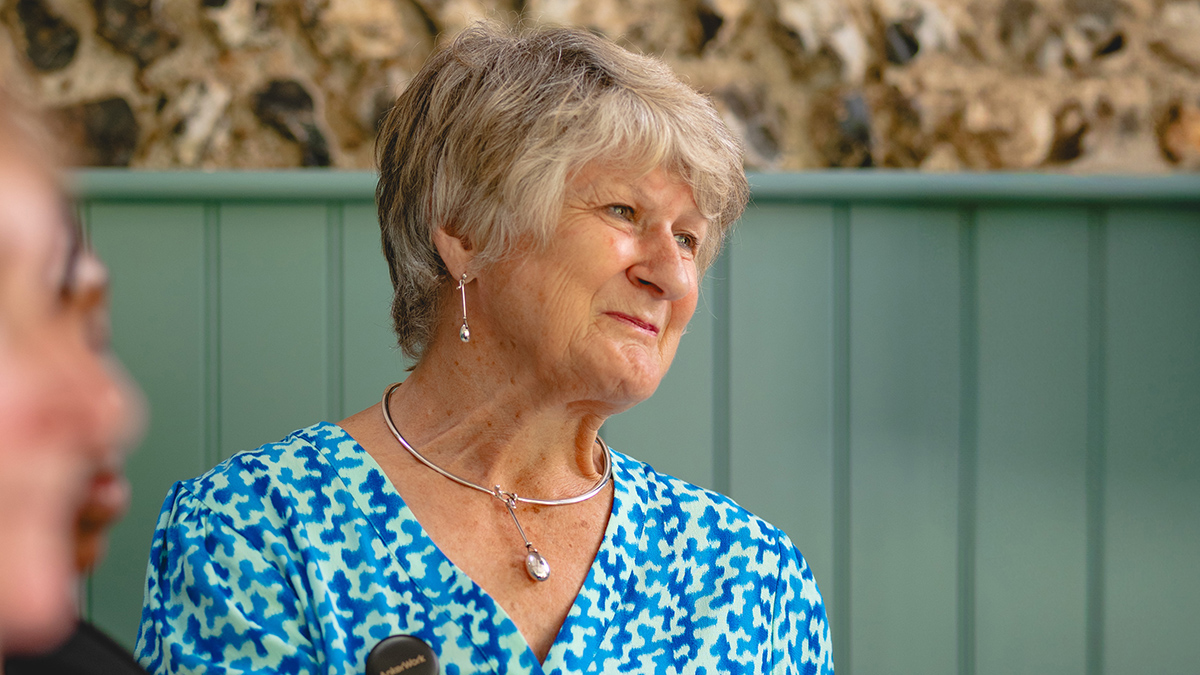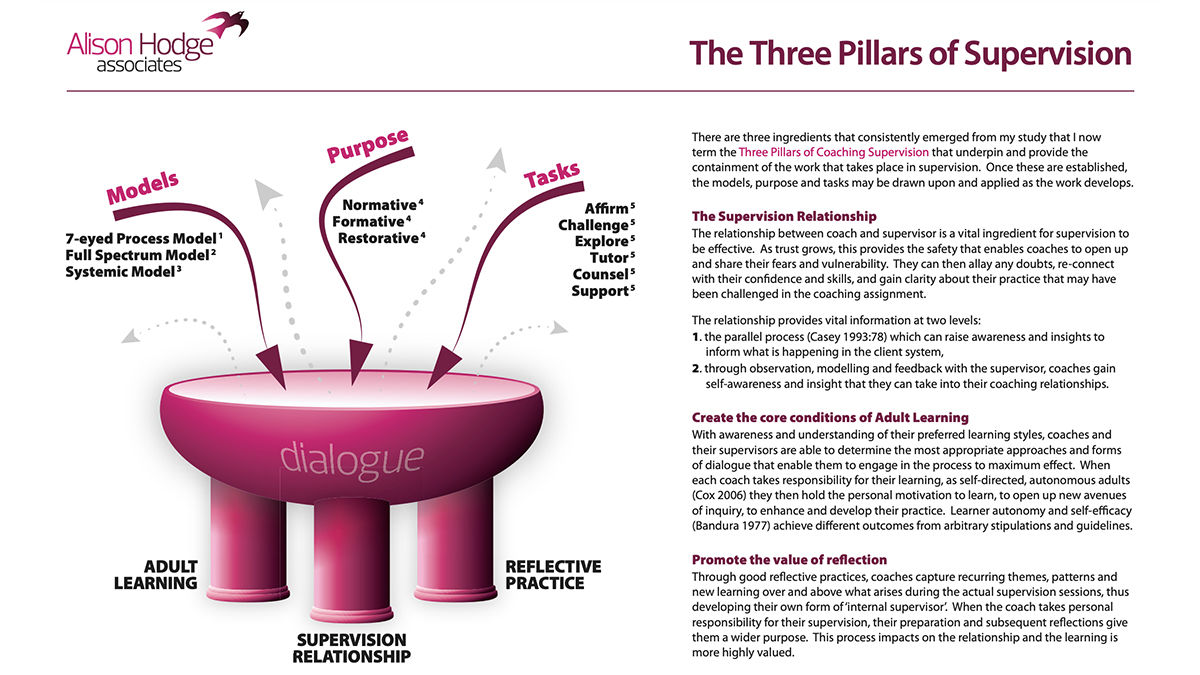Growth and flourishing
How does Alison work in supervision? On this page, she talks about the values which inform her practice, how the supervision relationship works, and the importance of coaches developing in who they are, as well as in what they do.
‘What underpins my work is my deep-seated belief that I can contribute to my client’s growth, development and learning. My starting point is a very strong belief that my client has the potential to flourish.’
Photo: Ash Sealy


The three pillars of supervision
One of the most exciting developments to come out of Alison's doctoral research is a new model of supervision, which she describes as the three pillars of supervision. This model underpins the way she works, leading to genuine change, learning and growth in the people she supervises. See the three pillars in this diagram.
‘The three pillars are the supervision relationship, an understanding of adult learning, and promoting reflective practice.’
Read more below about the three pillars of supervision.
The supervision relationship
Many years ago, the tutor on my Masters degree offered the statement: ‘If we take care of the emotional wellbeing, we will get the work done.’ This has informed my practice ever since.
For my part, I’m absolutely committed to my client’s learning, development and growth. The relationship and learning we build together is often a source of inspiration and delight to me – and I believe it powerfully contributes to their confidence and inspiration, both personally and professionally.
As we work together in supervision, I invite clients to notice what is happening to us in our relationship. We often learn a lot from what goes on between us, because it inform us about how they may be showing up or impacting their own client. For me, this is one of the most powerful aspects of the work of supervision.
Adult learning
When we feel safe, we feel able to share our thoughts and feelings without any fear of judgment. For many people this is when we have the conditions in which positive change can take place. It’s then that we can open up with our doubts, hesitations and vulnerability – and that’s where there’s space for true learning. We learn about ourselves, and in turn we can enable genuine learning with our clients. Creating safe, trusting and non-judgmental space is at the bedrock of what I aim to offer.
A large part of what I do (and enjoy doing!) is helping my clients develop new skills, tools and models, and gain a new awareness of methods to use when they go out and do the work of coaching.
I do this work is because I am passionate about learning, which I believe is at the heart of everything we do. I’ve been facilitating people to learn for as long as I can remember. With my cumulative experience of line management in organisations, running my own consultancy business, executive coaching, and supervision in executive coaching, what I do is rooted in my own wide experience and depth of research. At the same time, I constantly seek to ensure that I have a strong theoretical underpinning from diverse disciplines to support my practice.
Reflective practice
I strongly believe that reflection on what we do and how we work is the key to developing in our practice, which in turn reduces the possibility of getting stuck. If we stop and look at what we did, explore why we did it, and consider new ways of being and doing, we can find the space to change, free from repeating our old patterns.
That’s why I encourage my clients to develop good reflective practices. As they capture recurring themes, patterns and new learning over and above what arises during the actual supervision sessions, they develop their own form of ‘internal supervisor’.
Initially, a coach may come to supervision because they want to do things differently with their clients. However, I believe that who we are informs how we are able to do the work. So I invite my clients to bring all of themselves – whether it’s actual work issues, or life events, that may be impacting on their emotional, physical and mental wellbeing – and invite them to explore so that they can grow as whole human beings.



